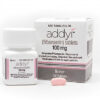Now that Addyi (flibanserin), the first drug for women to treat low sexual desire, but not as morning after (hypoactive sexual desire disorder, or HSDD), has been approved, what happens when the drug actually becomes available for use in October 2015?
HSDD affects up to 1 in 10 women in the US, according to research cited by Addyi developer Sprout Pharmaceutical, Inc. That’s a large potential market.
But we already know how the company benefitted. Only 2 days after approval, Sprout sold the company to Valeant Pharmaceuticals International for $1 billion.
Call me cynical, but the turnkey sale of Addyi makes me think that Sprout had their eye on financial gain all along, not necessarily the best interests of women.
Rocky Road to Approval of Morning After Pill
Dangers were evident from the very beginning of the drug’s development by Boehringer Ingelheim (BI). In June 2010, the Reproductive Health Drugs Advisory Committee met to discuss the first New Drug Application (NDA) for flibanserin and felt that “the drug’s impact was ‘not robust enough to justify the risks,’ which include dizziness, nausea and fatigue, particularly with long-term daily use,” according to a report in The New York Times.
The FDA decided not to approve flibanserin in August 2010, so BI, discontinued its development and sold it to Sprout. Sprout resubmitted the NDA in early 2013, but the FDA rejected it again due to safety concerns, particularly related to driving impairment, as 9.8% of women in the clinical trial experienced somnolence or sleepiness.
Sprout appealed the decision and resubmitted its application to the FDA in 2014 (the drug’s 3rd review with the agency), with additional safety data.
In spite of continued concerns about side effects, especially concomitant use of alcohol and a robust placebo effect in the clinical trials, an Advisory Committee which the FDA convened in June 2015 voted 18 to 6 in favor of moving the drug forward, and the FDA followed their recommendation to approve Addyi in August 2015.
But the approval came with demands by the FDA to develop a program to mitigate the risks of the drug beyond simply labeling them as side effects. The agency has required a black box warning on the label, has limited advertising for 18 months, and requires physicians and pharmacists to be registered to prescribe and dispense the drug. The dangers also prompted the National Women’s Health Network to oppose the drug’s approval at the hearing.
How Much Will Women Pay for Morning After Pill
Once the FDA approves a drug, insurance will pay for patients indicated on the label, but not for those who take the drug off label who have to pay most of the cost out of pocket.
The New York Times that Addyi is expected to cost about $400 a month without insurance. Addyi must be taken every day to be effective, so the cost adds up.
A PR Victory Over Medical Facts?
In addition, Sprout appears to have influenced the FDA decision by helping finance a calculated PR campaign during the approval process called “Even the Score” to promote a message of FDA gender bias. The campaign was “brought together by Audrey Sheppard, who once headed the office of women’s health at the FDA and was retained as a consultant by Sprout,” reports in an article about the marketing of the drug.
Women and their partners need to understand the possible dangers of taking this drug every day for the rest of their lives.
I object to the tactics used to bully the FDA into a guilt trip about approving more drugs for men than for women. And I object to the campaign — and Sprout perpetuating inaccurate medical information exemplified by their promotion of the now discredited phrase “pink Viagra.” Addyi doesn’t act like Viagra or any other male erectile dysfunction(ED) drug, and women need to understand that.
ED drugs work on physiological function; i.e. blood flow, while Addyi acts on neurological chemistry. In fact, it was initially developed by BI to treat depression. It’s not a one-time pill, and the effects of long-term and off-label usage are unknown.
What Will Doctors Do Now?
How will practicing physicians prescribe this new drug? The FDA oversees the manufacturers of drugs and medical devices, but has no authority to regulate physicians and the practice of medicine. It’s up to doctors to evaluate Addyi’s benefits against known safety issues that include low blood pressure, nausea and fainting side effects that have plagued the drug since it was first developed and are exacerbated when women drink alcohol or use birth control pills.
“Flibanserin has generated more questions, comments, and media inquiries than I’ve ever experienced in my 20-year career as an OB/GYN. Female sexual dysfunction is an important unmet medical need and deserves appropriate research and treatment options.” Hope Ricciotti, MD, Editor-in-Chief of Harvard Women’s Health Watch , adding “The problem of hypoactive sexual desire and arousal, especially for women, is real.”
But she is cautious about how the drug will be prescribed and actually used. “Whether Flibanserin will help the sub-group of women for whom it is appropriate, and the degree that it improves sexuality, remains to be seen. I suspect the effect is small, and the group for whom it can be safely applied is limited, but at least it’s a step in the right direction. My advice is to proceed with caution, and follow the advice of the FDA to the letter on this one. First explore all options to improve sexuality — reduce stress, take care of your health, check with your physician on your medications and health status, and prioritize time for your relationship,” she wrote.
The public relations campaign by Even the Score has already paid off handsomely for Sprout — and it will continue for Valeant when Addyi becomes available in pharmacies on October 17.
But what is the long-term pay-off for patients? Once again, risk vs. benefit analysis comes down to a frank conversation between physicians and their patients, as well as a clear understanding by women and their partners about the possible dangers of taking this drug every day for the rest of their lives.






